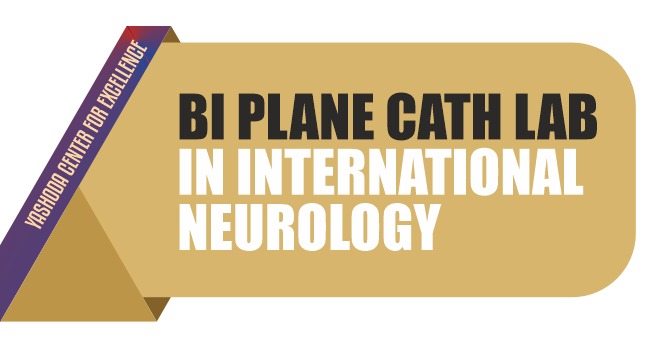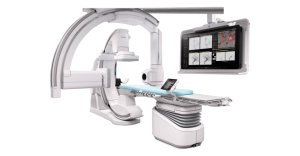Bi-Plane Cath Lab In International Neurology

The advent of bi-plane catheterization (cath) labs marks a significant advancement in neurological interventions, offering unmatched imaging capabilities that enhance the diagnosis and treatment of complex neurological conditions. These state-of-the-art labs have revolutionized procedures such as cerebral angiography, stroke intervention, and aneurysm repair.
A bi-plane cath lab is equipped with two sets of X-ray sources and detectors positioned at different angles, enabling the simultaneous acquisition of two imaging views. This dual-plane approach provides comprehensive and highly detailed visualization of the cerebrovascular system. In neurology, where precision is critical, the ability to view vascular structures from multiple perspectives in real-time allows neurologists to navigate complex anatomical pathways with increased accuracy and safety.
Advantages
- Faster decision-making
- Reduced radiation exposure
- Lower use of contrast dye
- Enhanced image quality
- 3D reconstructions
- Improved ergonomics
- Increased procedural efficiency and patient safety

Yashoda Hospitals, one of the largest quaternary care centers in the country, is renowned for its expertise in treating a high volume of neurology patients, particularly through minimally invasive procedures that prioritize optimal patient outcomes. The Department of Neurology at Yashoda Hospitals combines cutting-edge facilities, highly trained specialists, advanced technology, and best practices in non-invasive, interventional, and surgical procedures, along with comprehensive emergency services.





 Appointment
Appointment WhatsApp
WhatsApp Call
Call More
More